“On The Frontier. The Heroic Story of the Journalist from the Front-Line Newspaper is the name of the documentary prepared by the National Union of Journalists of Ukraine (NUJU) information service for Journalist’s Day.
The film tells the story of Vasyl Miroshnyk, the editor-in-chief of the front-line newspaper Zoria from Zolochiv, Kharkiv Region, who, every week and in his own car, delivers the newspaper issues to the settlements where there are readers of this publication, including to the front-line villages, which are perfectly visible in the sights of russian snipers.
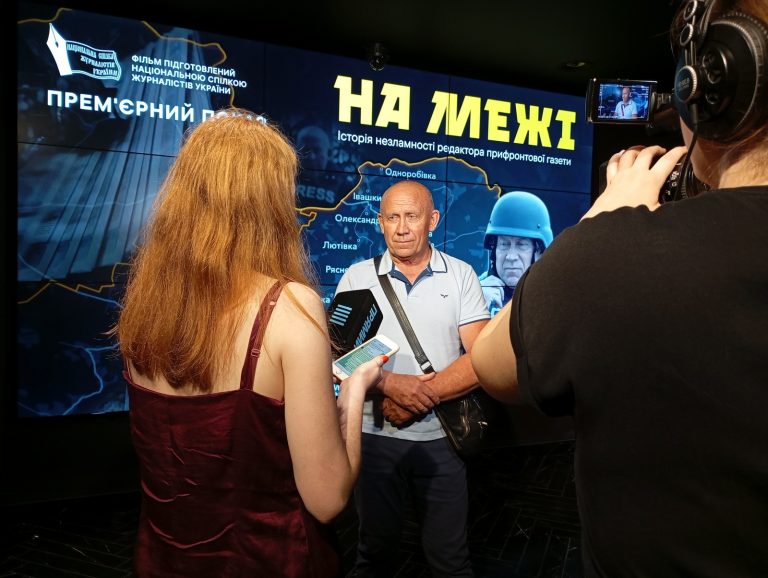
“Each trip is 400 kilometers of front-line roads. These are settlements that have long been washed with the blood of peaceful people. There are a lot of dead in each of them,” says Vasyl Miroshnyk. “But today, it is impossible not to make a newspaper for the front-line territories.”
In April, the film crew of The Union of Journalists traveled with him all the way, in particular, to the most remote corners of the Zolochiv district, which, on three sides, is surrounded by the territory of russia.
On June 5, on the eve of Journalist’s Day, the first screening took place in the capital’s Parkovyi convention and exhibition center.
“The hero of our documentary is doing his work on the frontier, the border with russia, on the frontier of possibilities. That’s why we named this film that way. The On The Frontier documentary is about both geography and state,” said the film’s director, Nataliya Shumak. “Vasyl Miroshnyk publishes and delivers newspapers, although he might not do this. But he does it to inform people, to help them. Yevhen Cherevko and I could not have made this film either. But we take the cameras in our hands and go to film front-line life. To show it as it is, to show the heroism and resilience of people like Vasyl Miroshnyk, like those residents who plant flowerbeds after shelling, like the workers of the printing press who print newspapers despite the blackout. Although all of them were free not to do it.”
Nataliya is convinced that every Ukrainian is now doing something that, in reality, he could not do. Our defenders could just as well not fight. But thanks to the fact that each of them took up arms and went to the front, we can hold such events.
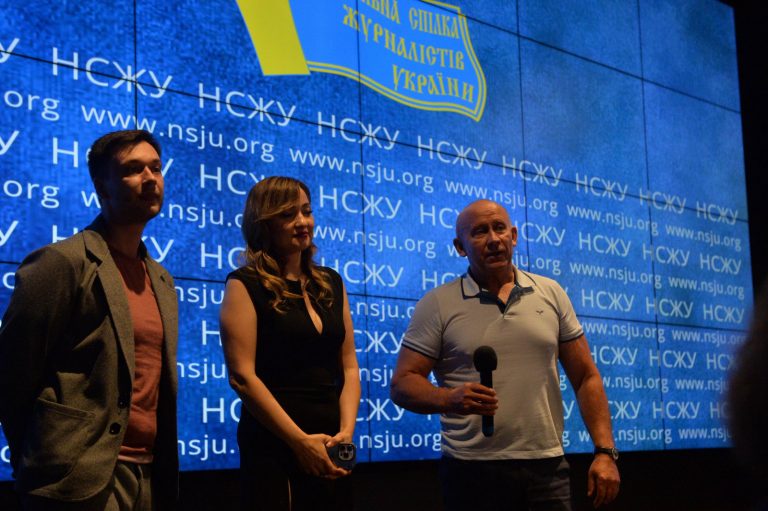
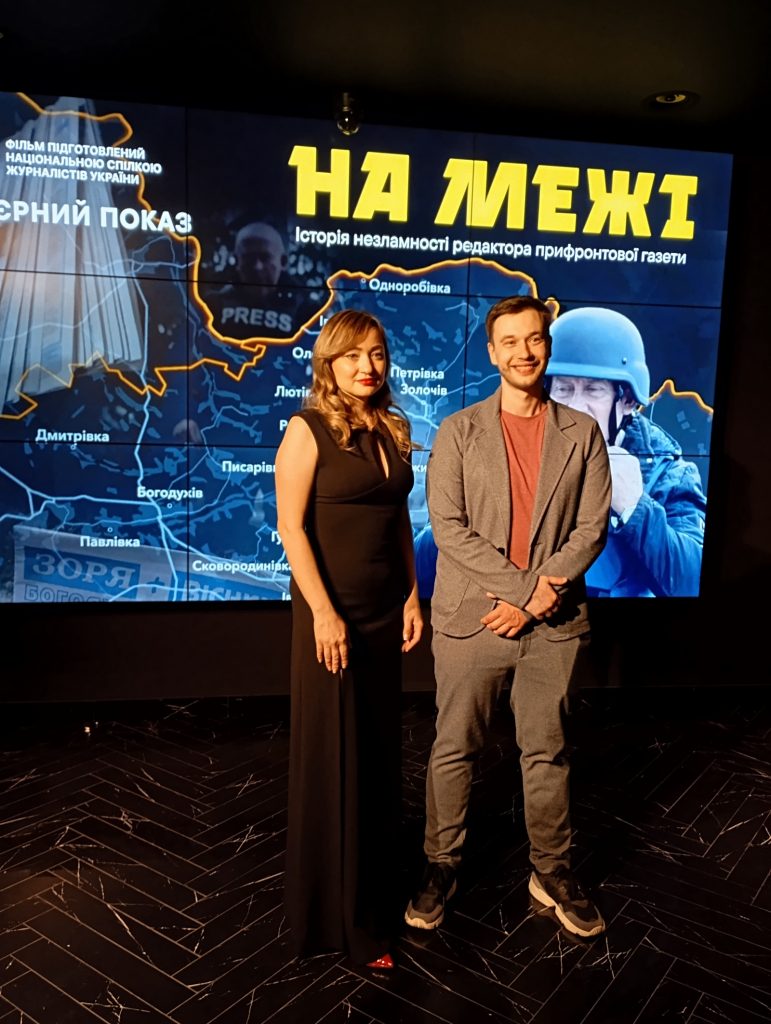
According to Yevhen Cherevko, the co-author of the documentary, the film is primarily about the importance of the printed press, which he called the “base” of journalism. “I can make a video and Vasyl Miroshnyk can make a video. But I can’t publish a newspaper, but he can,” Yevhen noted respectfully.
“The Union of Journalists considers the presentation of the film as an opportunity to emphasize the importance of the work of journalists who constantly live and work in the front-line territories,” emphasizes the President of NUJU, Sergiy Tomilenko.
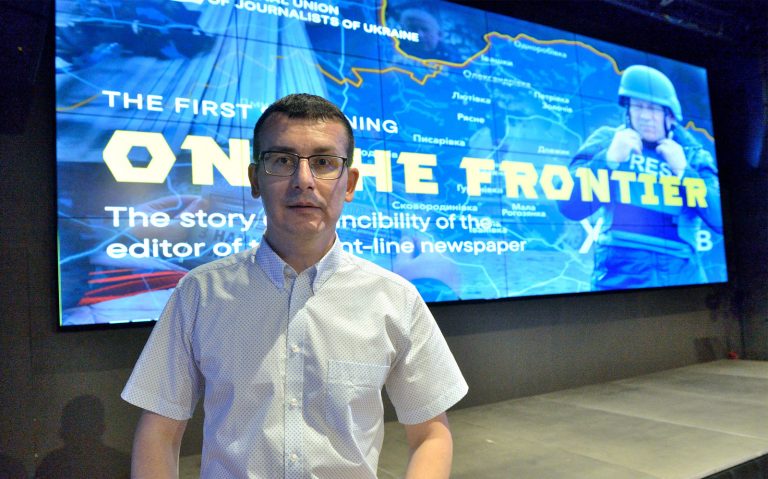
Journalists from the front-line regions (Kherson, Huliaipole, Myrnohrad, and Snihurivka) became the main guests in the most modern congress hall of Ukraine.
“Watching this documentary, you realize how similar the situation shown in it is to the one in the Kherson Region,” said Anatolii Zhupyna, the editor-in-chief of Kherson’s Novyi Den, speaking at the event. “Traveling through the villages and meeting with residents, you feel how important a newspaper publication is for them: we in the Kherson Region often lack internet and electricity…”
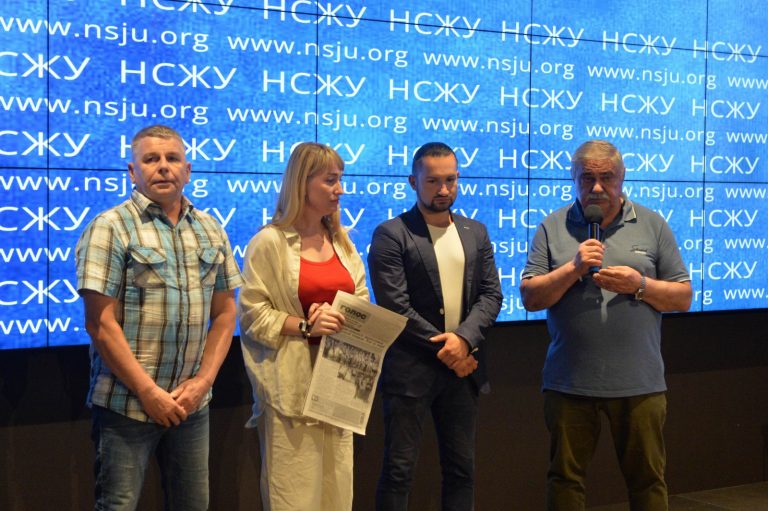
Ihor Novikov, the editor-in-chief of the newspaper Visti Snihurivshchyny, which is published in Snihurivka, Mykolayiv Region, a city that was under occupation for eight months, has a similar story.
“The newspaper, which the NUJU helped restore, appeared in Snihurivka ten days after the liberation,” the editor said. “When the city was liberated, there was neither the Internet nor electricity. And before that, the russians left our settlements several times – people thought that it was forever, but it was just a rotation… But when the newspaper came, people felt: Ukraine is already here, here are our people!”
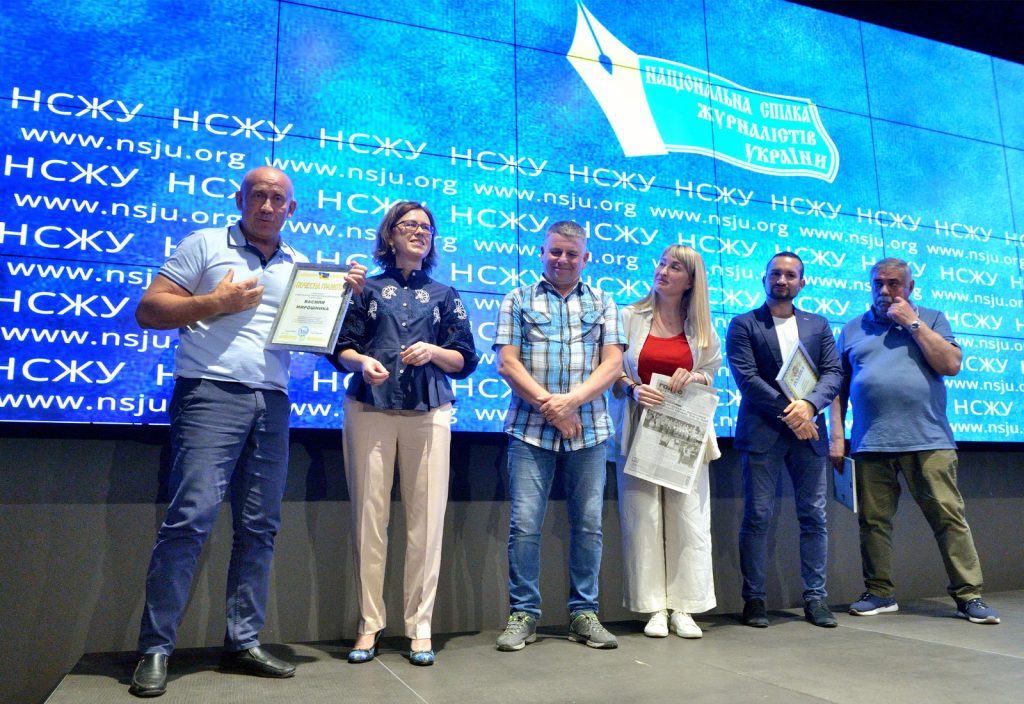
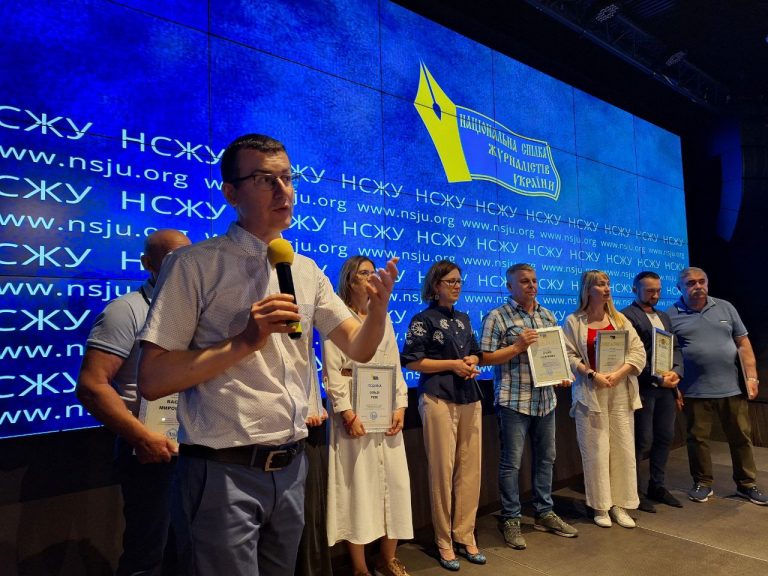
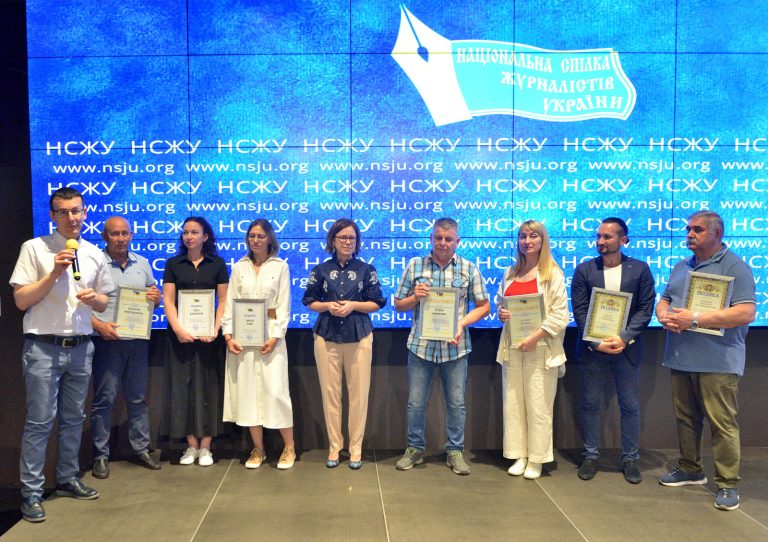
Ihor Novikov thanked the NUJU, the Institute for Regional Media and Information (IRMI), the Mykolaiv Press Club, and other partners for their help in the development of his publication.
The editor-in-chief of another newspaper restored with the help of the NUJU, Holos Huliaipillia (Zaporizhzhia Region), Tetiana Velyka, called her publication “her child,” which cannot be abandoned.
“In our Zaporizhzhia Region, major newspapers have ceased to exist, and local, front-line newspapers are published! These publications are always supported by readers. They may not trust the city or village head, but the newspaper editor is always in authority in his territory!” said Tetiana Velyka.
She sincerely thanked the NUJU for helping to restore the publication.
“I called the head of the Union and asked to “give us the first push.” And Sergiy Tomilenko said: “Let’s start!” – and we started! – Tetiana Velyka recalled how she printed the first issue of her newspaper with the financial support of the NUJU.
The editor also thanked the international partners and expressed hope that they will not leave the Ukrainian press in difficult times.
She also expressed admiration for such editors as Vasyl Miroshnyk.
“Vasyl Miroshnyk is a person who acted according to his conscience, who did not leave his readers and stayed with them until the victorious end…,” said Tetiana Velyka.
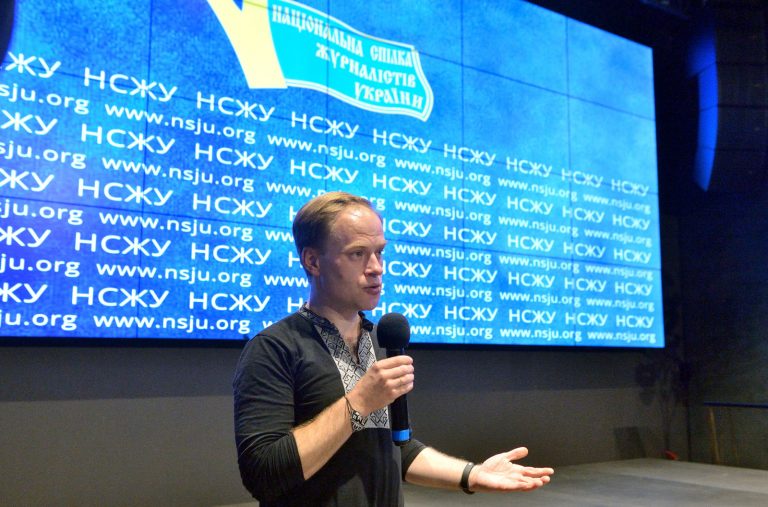
Especially in order to honor the courageous editor-in-chief from the borderline Kharkiv Region, on June 5 (one day earlier), the order of the Chairperson of the Verkhovna Rada of Ukraine was signed to award Vasyl Miroshnyk with a Certificate of Parliament. The head of the Committee on Freedom of Speech, Yaroslav Yurchyshyn, presented the award.
“We need a separate program, especially for the front-line areas, to ensure the printing press!” he emphasized.
The head of the parliamentary committee agreed that the state does not do enough for the media. At a time when the enemy is cutting off our people from information, relying only on digital formats is short-sighted.
“We will work on it. Many thanks for your work! Sometimes, not primarily and not thanks to, but on the contrary! The Verkhovna Rada understands the problems raised in the film: how important it is to provide people not only with physical protection and weapons but also with informational protection, which the editors actually do with their efforts,” Yaroslav Yurchyshyn added.
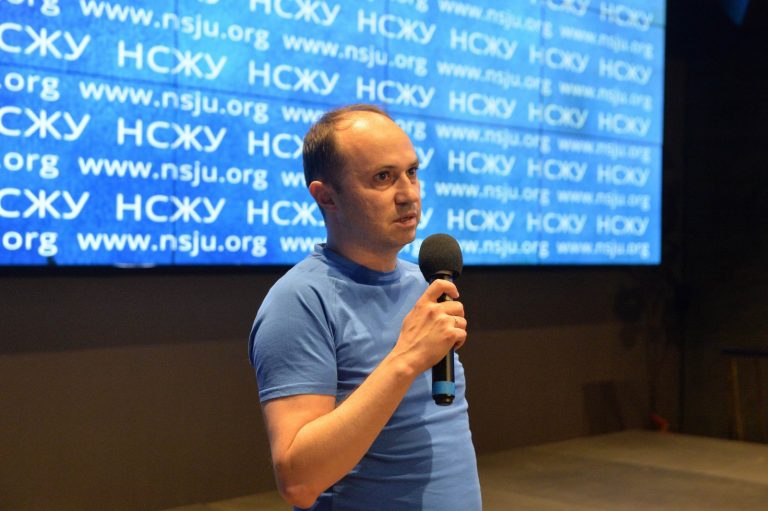
Participants in the discussion of the film shared their impressions of dating. Thus, Oleksii Soldatenko, the director of programs at the Institute of Regional Press and Information, said that he named the film At Home for himself.
“The film shows people for whom home is the most important thing. Who clean their parks and squares even in the break between shelling. They should feel that they live in Ukraine and that Ukraine needs them. Regional journalists give them such an understanding,” said Oleksii Soldatenko.
He noted that the information produced by local media is unique: it is about evacuation, humanitarian programs, public transport… Oleksii Soldatenko emphasized the importance of supporting regional media, helping them survive and modernize. The IRMI and the Swiss Fondation Hirondelle are ready to assist in the translation of the film On The Frontier into English for an international audience.
But Bohdan Chervak, a deputy chairperson of the State Committee of Television and Radio Broadcasting of Ukraine, is convinced that the film On The Frontier by the Union of Journalists is primarily about war.
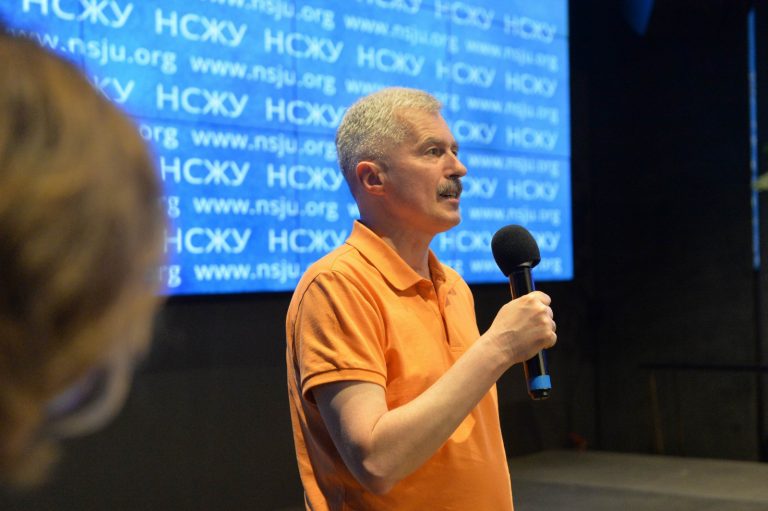
“This is definitely a film about war. Its characters speak a wonderful Ukrainian language, and this shows that real Ukrainians live there, and we are fighting for this land for a reason!” emphasized Bohdan Chervak. “For many years, we have been telling big officials that a printed newspaper is a great value, and this value cannot be lost in any way in our “online” life. And in this film, we saw that the newspaper is a real symbol of the Ukrainian state. So, without a doubt, this movie is important!”
AFU press officers, who not only inform the world about the activities of the Defense Forces of Ukraine but also, to a large extent, ensure the work of civilian journalists in the front-line territories, were special guests of the show. From the NUJU, the President of the Union, Sergiy Tomilenko, presented them with a new award, Press Officers Are Important.
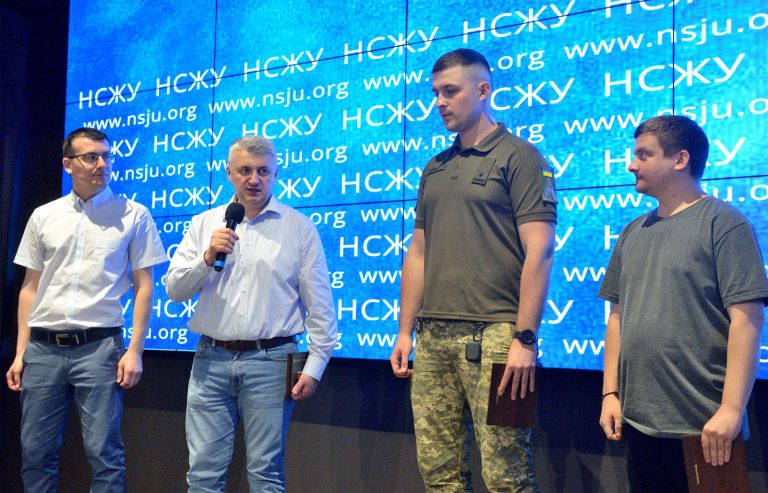
“Do you know what this movie is about? It is about the fact that we are not broken!” the experienced press officer. Currently, the head of the Ukrinform national news agency, Serhii Cherevatyi, expressed his opinion. “This is evidenced by the fact that you deliver the newspaper, that people clean up after shelling, that they show solidarity, that they realize that they are Ukrainians, invincible, powerful, who really know their worth. I am proud of such people!”
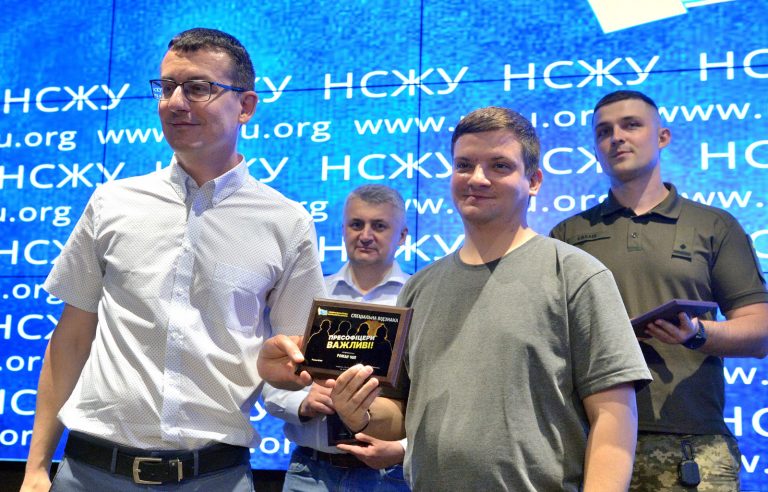
Press officer Roman Chop emphasized the high value of the information that journalists convey to their audience.
“I am sure that all readers of all Ukrainian newspapers dream of reading only one word in the columns: “Victory”!” said Roman Chop.
The press officer emphasized that he was sure that we would win, and the cherished word “Victory” would be in huge letters on the front pages.
And the spokesperson of the Air Force of Ukraine, Illia Yevlash, thanked Vasyl Myroshnyk for his work.
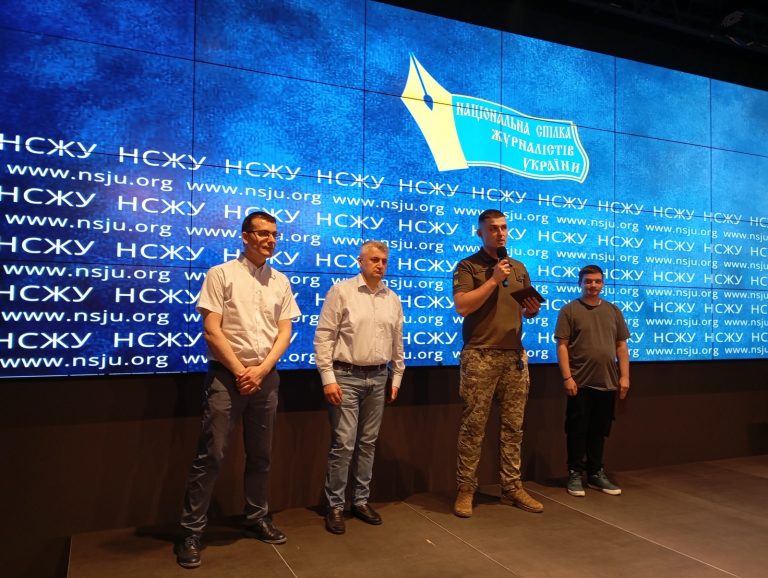
“The Kharkiv Region is of great importance for us, as it is part of the Khortytsia operational-strategic group of troops, where I had to work as the head of the press service for almost two years,” said Illia Yevlash. “The Kharkiv Region is suffering a lot even now. And the information that you convey to people is of great importance because we see how people are happy and inspired when they receive a Ukrainian newspaper. After all, it is a piece of something that is theirs, native… Regional journalism is extremely important!”
Well-known journalists, media experts, university professors of journalism, and partners of the NUJU took part in the first screening.
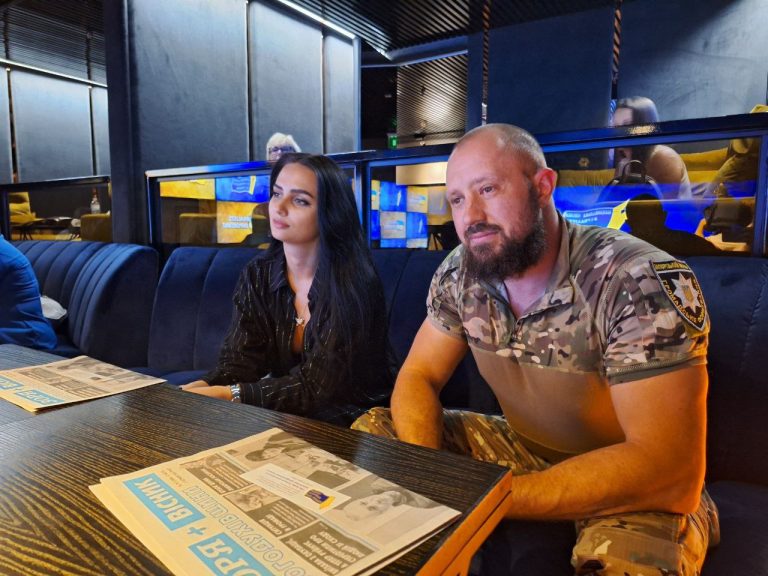
“Dissemination of true information today is a big mission,” said Stanislav Stoikov, a military volunteer from Zaporizhzhia. “I understand how difficult the situation is today in the front-line settlements of our region – Orikhiv, Huliaipillia, Mala Tokmachka… I hope that with joint efforts we will be able to organize the delivery of newspapers as close as possible to the contact line. Because there are also people there, and they want to learn the Ukrainian truth and the Ukrainian point of view.”
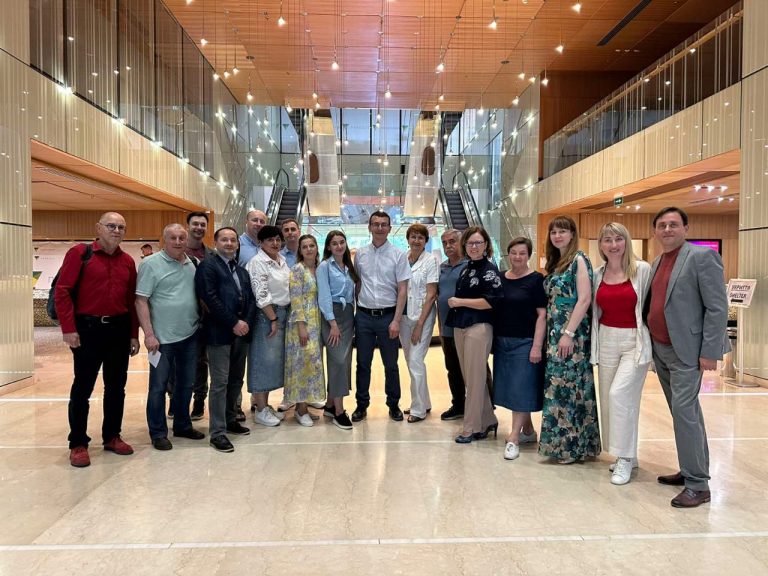
The 42-minute-long documentary called On The Frontier. The Heroic Story of the Journalist from the Front-Line Newspaper was prepared by the film crew of the NUJU information service consisting of Nataliya Shumak and Yevhen Cherevko – in April; the authors traveled together with Vasyl Miroshnyk. This is his weekly 400-kilometer route through the settlements where Zolochiv’s Zoria newspaper is read. The route starts from the Kharkiv printing house, Faktor-Druk, which was hit by russian missiles after the filming of the documentary. It happened on the day when Vasyl Miroshnyk planned to take the circulation…
Support for the restoration and stable work of the media in the front-line and de-occupied territories is among the main priorities of the National Union of Journalists of Ukraine. With the assistance of the Union, as of now, with the assistance of partners, including the largest ones, such as the IRMI and the Fondation Hirondelle, it has been possible to resume publishing 32 newspapers in these territories.
Front-line media journalists receive ongoing support through the NUJU Journalists’ Solidarity Centers network, which is supported by the International and European Federations of Journalists and the UNESCO headquarters.
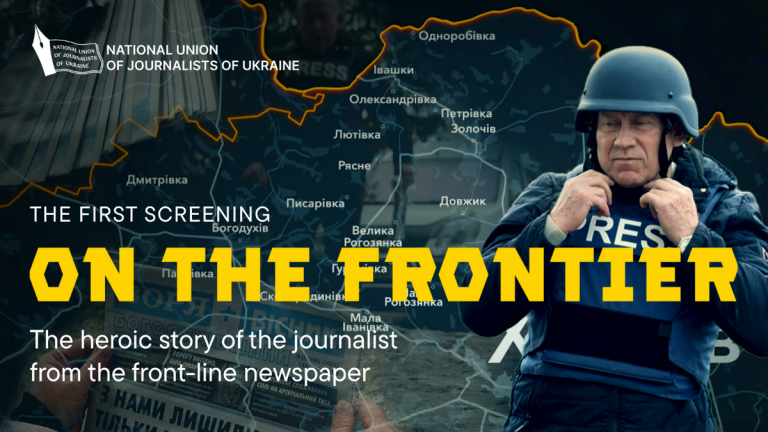
NUJU Information Service

 THE NATIONAL UNION OF
JOURNALISTS OF UKRAINE
THE NATIONAL UNION OF
JOURNALISTS OF UKRAINE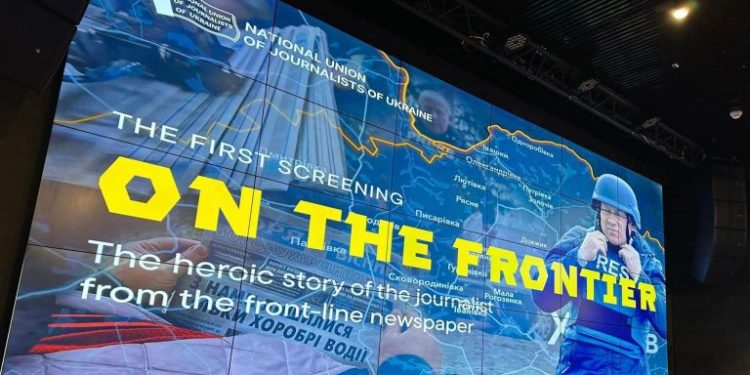
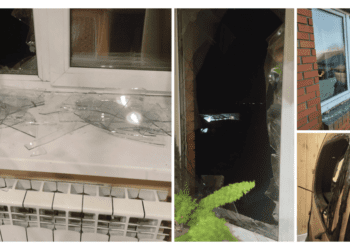
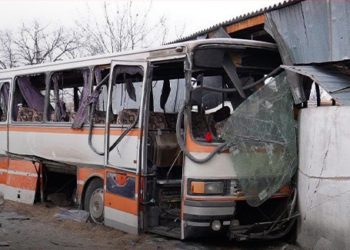














Discussion about this post